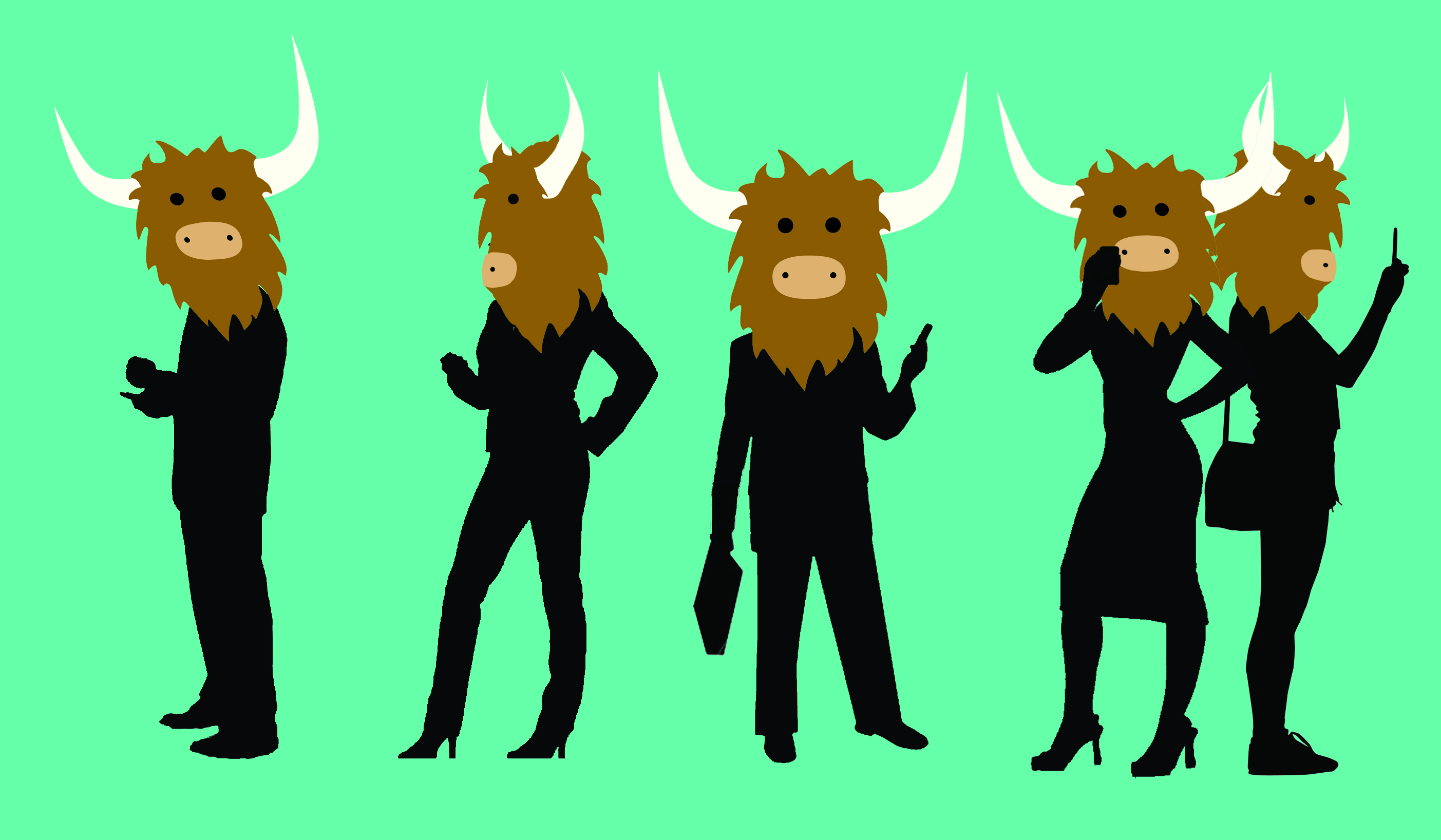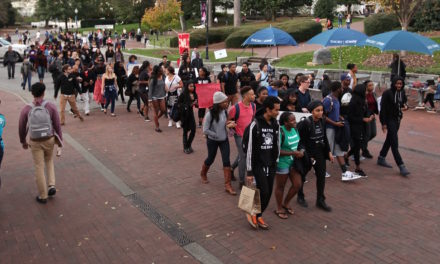Even if you have never attended a live sports game, you have inevitably heard of the kiss cam. At the very least, you’ve seen YouTube compilations of “Kiss Cams Gone Wrong” and “Awkward Kiss Cam Moments.” The premise is simple: camera operators lock in on two people in the audience who are then expected to kiss. As if it’s not horrifying enough to have your face broadcasted on the Jumbotron, the chosen fans are either zealously cheered on or booed if they don’t kiss. Starting out as an innocent form of entertainment, the kiss cam transformed into a defining social pastime in sports culture that hides an ugly truth: underneath its frivolity is a perverted form of pressure that evokes a distorted message about our perceptions of entertainment.
Whether you like it or not, choosing to attend a sports game means choosing to participate in the kiss cam. There’s no opting in or out. Though it may be unintentional, kiss cams normalize unwanted public intimacy, undermining persistent efforts to prevent these pressured intimate advances.
When the #MeToo movement erupted nearly two years ago, exposing sexual abuse and harassment stories from women, our society became more cognizant of this endemic, working toward strict policies and regulations to prevent sexual harassment. While the kiss cam cannot be legally defined as sexual harassment or coercion, it breaks the barriers of someone’s privacy and consent for the sake of public entertainment. Why is coerced public affection used as a form of entertainment and as a method of “comic relief”? While some might argue one can simply ignore the camera and wait for it to turn away, the kiss cam still throws people under the limelight. Under the pressure of the jeering, the disappointment and the unspoken stereotype of being uptight, we tend to make poor decisions, making it difficult to say no.
For some, this momentary awkwardness will fade away. But for others, it might be a memory of embarrassment and humiliation.
“There was an almost immediate feeling of discomfort of knowing that tens of thousands of people were staring at us expecting a kiss,” Adam Shprintzen, an associate professor of history at Marywood University (Pa.), tweeted about his experience. “There was the inherent pressure to have some sort of reaction. … I can’t even imagine what was running through this total stranger’s mind at the moment, to be asked to kiss some random dude for everyone’s entertainment.”
Similarly, in a letter to the editor of Syracuse.com, Steve Port of Manlius, New York, listed some of the incidents he witnessed at a football game. Port detailed one instance where, although the girl shook her head when the camera zoomed in on her, the guy “[grabbed] her head and shove[d] his tongue down her throat.” Another time, he wrote, “this second female in question shakes her head no. I then see no less than six sets of hands from the seats around her shove her unwilling face into his, crowd cheers.” These incidents would be criticized under any other circumstance. Why does a sporting event make them okay?
Unwilling participation and discomfort, regardless of relationship status, should not be disregarded under the pretense of having fun. People are not entitled to receive a kiss if they appear on the big screen, nor should others around them pressure them. “There’s nothing inherently perverse about kissing, or even sex for that matter,” said Melissa A. Fabello, a sex writer and researcher. “But there’s something disturbing about performing it for others’ entertainment in a decidedly non-sexual environment.”
When the first Jumbotrons were introduced in the 1970s, the only audience members privy to the kiss cam were those already in the stadium. However, in a world where social media and technology reign, nothing is private anymore. Facial recognition apps can identify fans, and a video recording from a phone can be posted on YouTube compilations – someone’s 10 seconds of fame could inadvertently end up imprinted on the internet forever.
Kiss cams are not just an invasion of privacy, however. They breed an environment of social pressure where success gambles on spontaneity and stereotypes. “[Camera operators] are typically … looking for cues that indicate fans are together,” an Orlando Magic spokesperson wrote in an email. But what does a “couple” look like? Trying to speculate someone’s relationship status assumes people’s actions are divided between “dating” and “not dating.” Sometimes, people of opposite genders can be siblings, relatives or just friends. Pervasive heteronormativity also leaves out and discriminates against LGBTQ+ couples. Kiss cams thus reinforce heteronormativity by delegating a narrow-minded definition to the word “couple” to prevent any potential offense someone may take.
It might be hard to believe kiss cams will ever go away. After all, they have cemented their place as a staple of American sports culture. But even then, are they so ingrained in our traditions that we forget to be skeptical? It’s time to critically analyze kiss cams and consider what they perpetuate — otherwise, we cannot really preach about respecting someone’s boundaries and preventing sexual harassment if we let sports events get away with it for “fun.” We must stop excusing the lack of consent and agency kiss cams impose.
Sophia Ling (24C) is from Carmel, Indiana.
Sophia Ling (she/her) (24C) is from Carmel, Indiana and double majoring in Political Science and Sociology. She wrote for the Current in Carmel. She also loves playing guitar and piano, cooking and swimming. In her free time, she learns new card tricks and practices typing faster.




